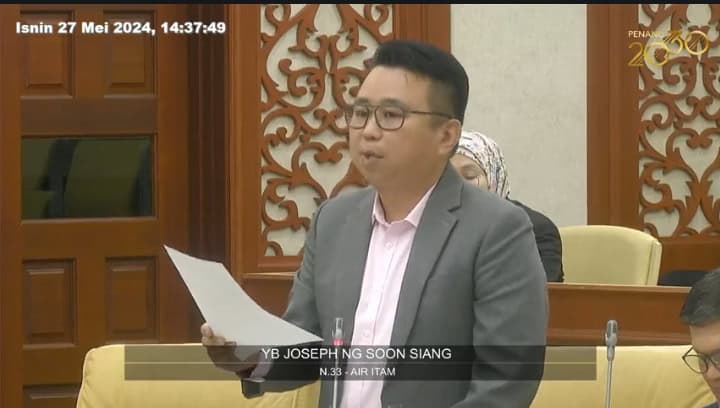A CONCERN was raised regarding the pricing of food and beverages at the food courts under the administration of the local authorities, Penang Island City Council (MBPP) and Seberang Perai City Council (MBSP).
Joseph Ng (PH-Air Itam) pointed out that while the rent for food court stalls is low, the prices of food items are high.
“The reason for offering low rental rates to stall owners is to make sure that consumers can afford meals at reasonable prices.
“For many years, the rental of stalls under the local authorities has remained cheap and ‘friendly’ (ramah). The fees are charged at a low average rate ranging from RM8 to RM250 monthly.
“I was surprised when I received complaints from the public that there are stalls, for example, serving char koay teow from RM8 per plate, which is the same as stalls in private food shops.
“The food prices at stalls under the local authorities should be 10 to 20% cheaper than those at private stalls,” Ng said at the State Legislative Assembly session today.
Ng stressed that hawkers should not raise prices due to higher raw material costs, especially if they operate businesses on sites owned by the local councils.
“Some food prices are stabilising now, so hawkers should consider the community’s financial situation.
“I would like to suggest that the local councils and the Ministry of Domestic Trade and Cost of Living (KPDN) work together to conduct integrated monitoring and operations and advise the stall operators.
“KPDN has a system in place to ensure that traders make reasonable profits based on past profit data,” added Ng.
Ng added that for hawkers who persist in charging unreasonable prices, the local authorities should consider not renewing their leases and instead provide opportunities to new traders.
“I also would like to raise the matter regarding the policy of banning foreign cooks from local stalls and food courts under the local authorities. This issue has been raised as early as 2014.
“This policy is to protect the source of income and employment opportunities for local citizens, especially Penang residents.
“Additionally, it seeks to maintain Penang’s image as a ‘food paradise’ and preserve the authenticity of local food tastes, especially as Penang gains popularity as a food tourism destination, receiving recognition from international bodies such as the Michelin Guide,” Ng said.
Ng suggested that the local authorities conduct integrated operations with the Immigration Department and establish a schedule for periodic inspections of relevant areas.
Story by Tanushalini Moroter

